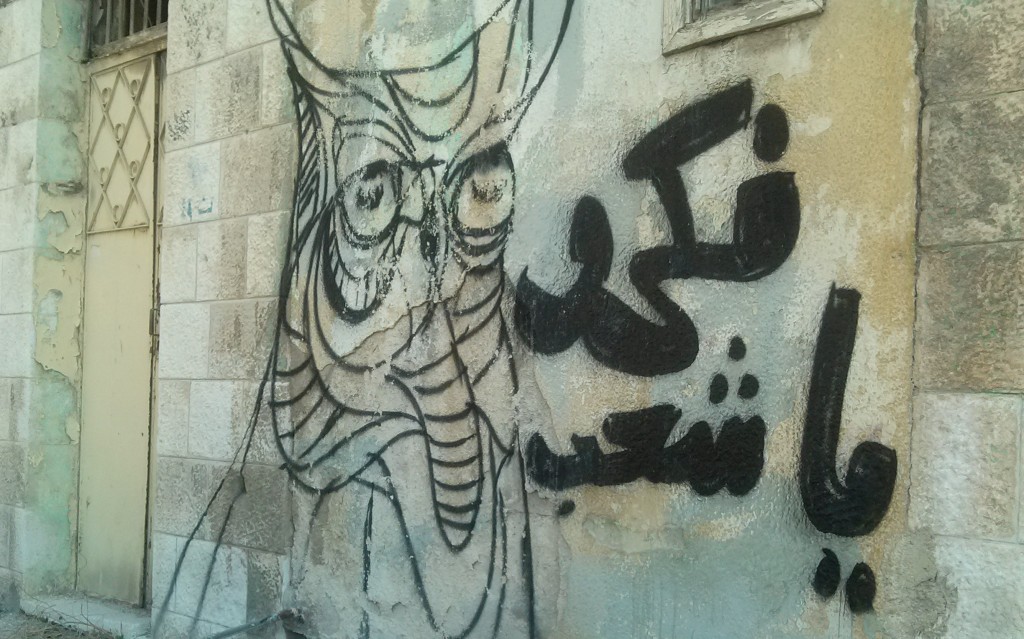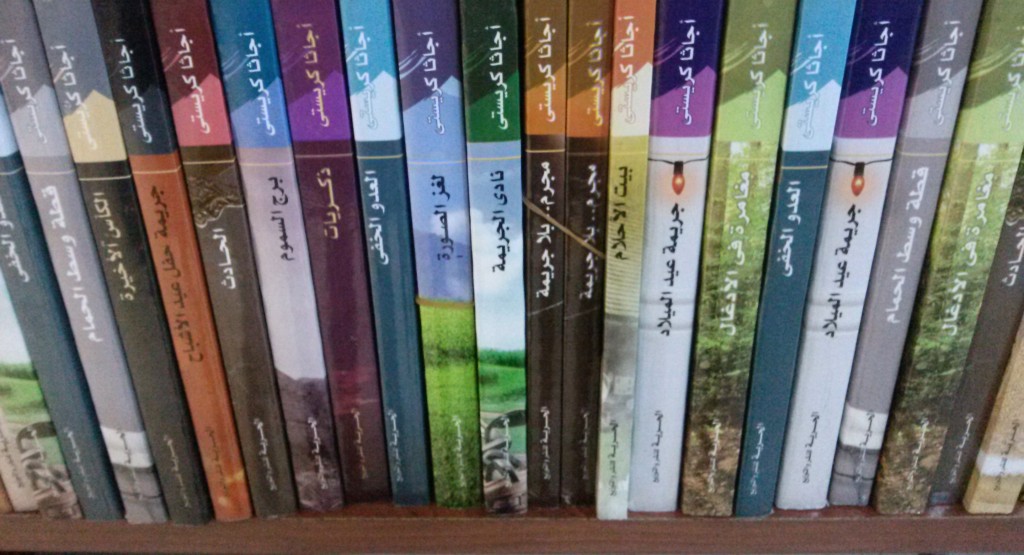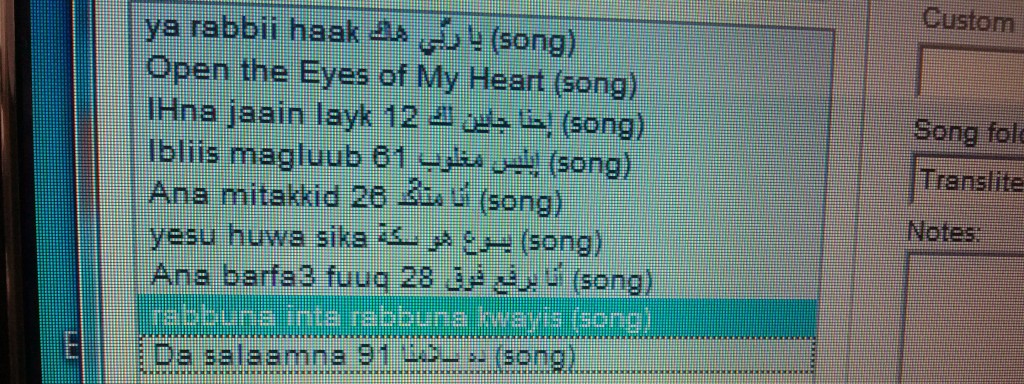I’ve been studying Arabic for six years, and while it’s a slow process, there are plenty of reasons to scale this mountain. The following four footholds will steady you along the way.
-
You may have been scared off hearing that contemporary Arabic has two registers of speech: formal (Modern Standard Arabic – MSA – or fuṣḥa فصحى) and informal (dialect orʿaamia عامية) and that the dialects differ between regions and sometimes even cities. How will you transition your BBC News listening skills to the streets?
Here’s the trick: All native Arabic speakers with even an elementary education (so, most people you will meet in the Arab world) have always been able to tell me, “that’s MSA, this is dialect.” They all speak their dialect but listen to/read the news and books in MSA. If you learn a word in one register, people will help you fill in your gaps in the other. Language is social! You can’t learn it in a vacuum – you can’t learn Arabic without meeting Arabs – so plan to depend on others in your development.
- Example: In MSA, What is your name? is ما اسمُكَ؟ When I got off the plane in Amman, I asked my driver, اسمَك أي؟ And he said to me, You’re speaking Egyptian dialect. Here in Jordan we say شو اسمَك؟ He knew the different registers, and was able to set me straight. Plenty of people who don’t have the job title of Teacher can (and will) teach you.
-
It’s true that Arabic Dictionaries are not organized by the spelling of the word – they’re ordered by the root. However, because parts of speech follow set spelling patterns, roots are easier to derive in Arabic than in English.Once you learn the alphabet, you’ll be able to correctly guess the root of a new word (or narrow it down to 2-3 options). When you know the root, you’ll roughly know the meaning. Also, when you crack open a (good) dictionary, each root entry is a treasure trove of new meanings and subtleties.
- Example:جمع is a verb that means to gather. اجتماع means a meeting. مجموع means a group. جامعة means a university. In the dictionary, they’re all under the heading for the root ج-م-ع.

It’s going to be hard to order that delicious Yemeni dish next time if you can’t remember what it’s called (not really, just point at the picture). Photo by Laura Cathey. CC BY-SA 2.0
-
You may have heard there are no short vowels written in most Arabic texts, but I say to you that you do not need them. Because meaning comes from the root and form, sounding out an unknown word is not going to help you (except for “starbks kafh” or “kmbyutr”). Words that you know, you’ll recognize without their short vowels written in.
- Example: When I’m speaking, I need to pronounce the differences between رَجُل (/rajul/ man) and رِجْل (/rijl/ leg), but when I’m writing, it’s clear from context which one I mean just by writing رجل. (Some Arab linguists even argue there’s no such thing as homonyms in Arabic, just shades of a single meaning. So that argument would go like: if I wasn’t sure whether “رجل طويل” meant “long leg” or “tall man” ultimately I don’t need to answer that question because a tall man has long legs, so the two meanings are congruent.)
-
To me, the biggest reason to not be afraid of choosing Arabic – in spite of how hard it is for English speakers to learn – is that native speakers don’t swallow their letters in Arabic, like they do in Spanish and French and English. Take the sentence, “Does your apartment have internet yet?” A native speaker will say, “Duzhur apar’men’ havin’erne’ ye’?” Not a single T gets pronounced! In Arabic, every letter is pronounced, even in informal contexts. This gives you a fighting chance to actually hear words you know in context and put your knowledge to use.
- Example: Even accounting for regional pronunciations, once you learn that Egyptians say ز for ذ and ء for ق, you’ll still hear them consistently pronounce all those letters. يا أستاذ – قلمي مش معي in MSA is /ya ustadh, qalami miš maʿai/ whereas Egyptians would say /ya ʾustaz, ʾalami miš maʿai/. The ذ and the ق are pronounced albeit differently – they’re not dropped.
I hope these points have made Arabic seem a little less impossible to you. You probably already know the benefits of learning Arabic: accessing hospitable and affectionate cultures, heartbreaking music and poetry, soulful religious teachings, corny slapstick movies, a cuisine full of delicious herbs and spices (even in their sweets, drinks, and tobacco), and a depth of politics you’ll never exhaust. Arabs seem to love their language as enthusiastically as Arabic 101 students still in the “it’s so pretty” honeymoon stage – they decorate with calligraphy and they cannot get enough of puns and word play. Yes, it will take you years to achieve in Arabic what took you months in Spanish, but remember these four aspects of the language that will help you along rather than trip you up.


